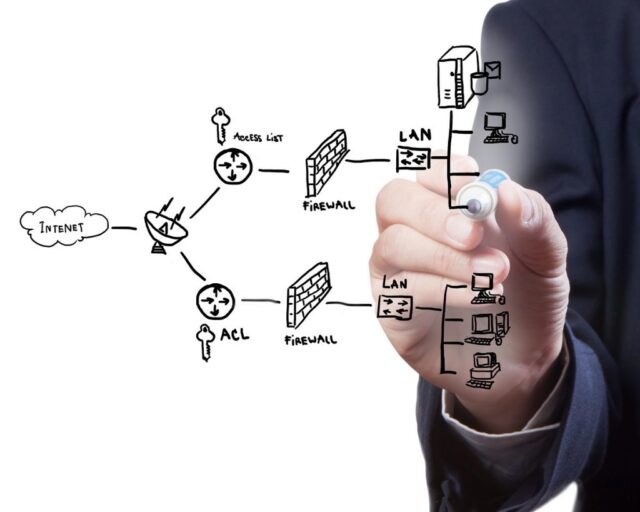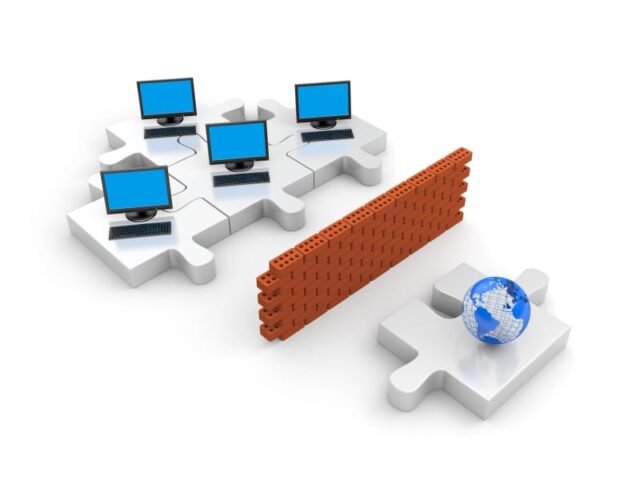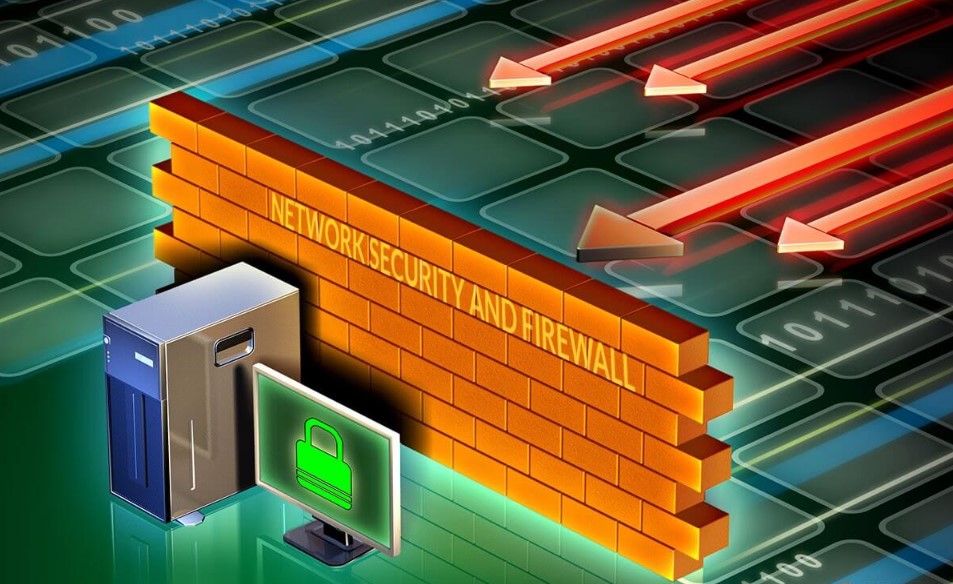Network firewalls are an essential tool for businesses in the digital age. As companies increasingly rely on technology to power their operations, a secure network is paramount. Firewalls are a form of security that helps protect networks from malicious attacks and unauthorized access.
In this article, we will discuss what network firewalls are, why they’re important, and how they work to keep your business safe.
At its most basic level, a firewall is a software or hardware device that monitors incoming traffic to and from the network it’s protecting. It acts as an intermediary between trusted internal networks and untrusted external networks such as the Internet. The firewall inspects all incoming traffic based on predetermined rules before allowing it into the protected network or rejecting it if it doesn’t meet certain criteria. This process of inspection prevents unauthorized access by malicious users or programs while allowing legitimate users to conduct business without interruption.
The importance of network firewall security cannot be overstated when it comes to keeping businesses secure online. Without proper protection from threats like malware, ransomware, phishing attacks, and more – companies leave themselves vulnerable to data breaches that can have devastating consequences including financial loss and reputational damage.
Types of Network Firewalls

Network firewalls are essential tools for protecting a computer network from malicious activity. They are used to control incoming and outgoing traffic, and they can be set up to block certain types of traffic or applications. Several different types of network firewalls can be used to provide the best protection for a network.
The first type of firewall is the packet filter firewall. This type of firewall inspects each packet of data that passes through it, looking for specific characteristics such as its source address, a destination address, port numbers, protocols, and other attributes. If any of these criteria match what is specified in the rule base then the packet is allowed or denied access depending on its ruleset. Packet filter firewalls are great at providing basic security but may not be enough if more sophisticated attacks are encountered.
Another type is the proxy server firewall which works by forwarding requests from outside sources to an internal web server before allowing them access to your internal networks or systems. This provides an extra layer of security as only approved requests will get through while all others will be blocked from reaching their intended destination within your network infrastructure.
Advantages and Disadvantages of Network Firewalls

A firewall is an important part of any network security system. Firewalls are used to control the flow of traffic between networks, restricting access to only authorized users. Network firewalls work to protect a network from malicious attacks or intrusion by monitoring incoming and outgoing traffic and filtering out suspicious activities.
Advantages of Network Firewalls
The main advantage of a network firewall is that it can provide an extra layer of protection for your network from external threats such as hackers or viruses. A firewall can also be configured so that it blocks certain types of traffic, such as unsolicited emails or malicious websites, which helps protect your network from potential attacks. Additionally, firewalls can help monitor user activity on the network and detect any suspicious behavior or malicious activity.
Disadvantages of Network Firewalls
One disadvantage of using a firewall is that it can be difficult to configure properly and some settings may need to be adjusted regularly for them to remain effective at blocking unwanted traffic. Additionally, if a firewall is not configured correctly it may block legitimate traffic which could result in lost productivity or reduced performance on the network due to delays in accessing resources or services.
Best Practices for Implementing a Network Firewall

Network firewalls are an essential component of any organization’s security infrastructure. They are designed to protect your network from malicious traffic and other threats that can compromise the safety and privacy of your data. While there is no one-size-fits-all approach to implementing a network firewall, there are some best practices that organizations should follow to ensure maximum protection.
First, it is important to understand the range of threats that a network firewall can protect against. Network firewalls can be used to block malicious traffic from entering the internal networks, as well as prevent unauthorized access through external networks. It can also help control what types of traffic are allowed on the corporate network, such as preventing certain types of web content or downloads from entering the system.
After understanding what type of threat protection is needed, organizations should identify their specific needs and determine which type of firewall will provide the best solution for their environment. Organizations have several options when it comes to choosing a firewall; they can select either hardware or software solutions depending on their particular needs and budget constraints. Hardware firewalls tend to be more expensive but provide more robust protection than software solutions; however software solutions often offer more flexibility in terms of configuration options and customization capabilities for specific applications or services.
Challenges with Maintaining a Secure Network Firewall

In today’s interconnected world, it’s increasingly important for businesses and organizations to maintain a secure network firewall. A firewall is an essential layer of protection that helps to protect your network from outside threats, such as hackers and malicious software. Unfortunately, maintaining a secure network firewall can be challenging. Here are some of the biggest challenges you may face when it comes to maintaining a secure network firewall:
Keeping up with evolving threats
Network firewalls are designed to prevent unauthorized access or malicious activity from external sources, but new threats emerge constantly. Cyber attackers develop new techniques all the time to bypass existing security measures, so staying on top of the latest trends in cyber security is essential for keeping your network safe and secure.
Addressing technical weaknesses
Firewalls are only as strong as their configuration settings and underlying architecture allow them to be; if there are weaknesses in either one then they can be exploited by attackers who understand how they work. Regularly auditing your firewall setup is important for identifying any potential vulnerabilities that could leave your system exposed – and correcting them quickly before they can be exploited by hackers or malware authors.
Conclusion
In conclusion, network firewall security is an essential part of keeping computers and networks safe from malicious threats. Network firewalls can be used to control access to a network, block malicious traffic, and detect suspicious activity. Firewall security should be implemented in all organizations that use a computer network and should be monitored regularly to ensure the highest level of protection possible.







